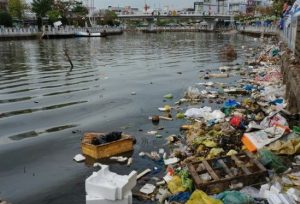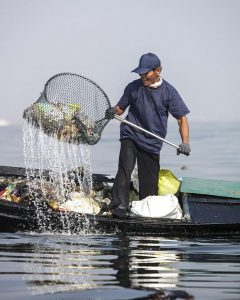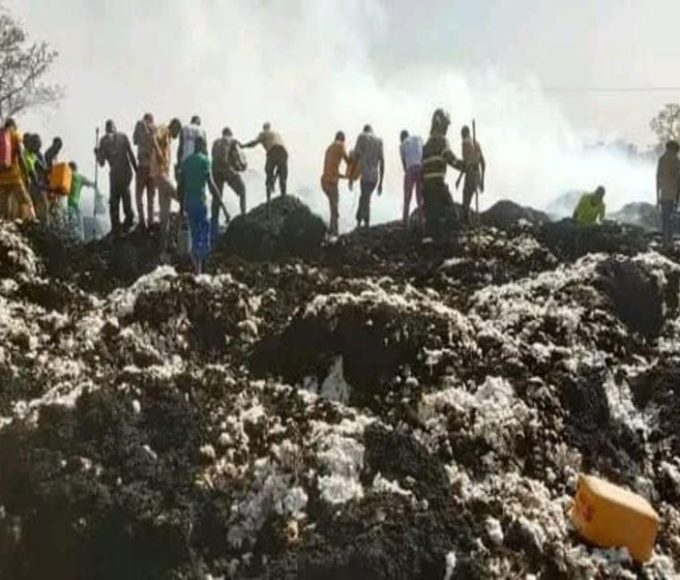
Shocking Discovery: Researchers Have Detected Nearly 240,000 Micro-plastics in Bottled Water

Researchers say they have found microplastics in bottled water in concentrations 10 to 100 times more than previously estimated.
These microplastics are tiny pieces of plastic debris (between 1 micrometre and 5 millimetres) that result from the mismanagement of plastic waste, consequently leading to the accumulation of plastic debris in the environment.
According to a study published on Monday in Proceedings of the National Academy of Sciences by researchers from Columbia and Rutgers University, a stunningly alarming estimate of 240,000 detectable plastic fragments have been found in a typical litre of bottled water in increasing contrast with the 2018 study that found an average of 325 pieces of microplastics in a litre of bottled water.
While about 10% of the detected plastic particles were microplastics, the other 90% were nanoplastics, which are said to be even more dangerous and of health concern due to their negligent size that can easily be misidentified as natural cell components. Nanoplastics are less than one micrometre in size, which is 70 times smaller than the size of a human hair strand.
Before this finding, research carried out at Hull York Medical School in England had identified plastics in the lungs of living people. Plastics have also been found in blood and excrement of human biological samples, and the depths of the ocean as well. They are turning up everywhere, and now, here they are, massively found in a litre of bottled water, of which consumption over the years could as well be a reason they’ve been detected in significant quantities in human biological samples.
This poses a problem for countries like Nigeria, where environmental waste pollution is a persistent problem the country grapples with.

Being the largest African country in terms of population size, Nigeria is a prime consumer of plastic. Globally, the country is ranked ninth for plastic pollution, with an estimated 2.5 million tons of plastic waste generated annually and less than 12% recycled.
In Nigeria, water sachets and shopping bags are the major constituents of plastic waste. Most plastics are discarded indiscriminately after use and are persistent in the environment due to their low degradability, as research has shown that a single plastic bag takes 1000 years to degrade once disposed of into the environment.
These discarded plastic materials often end up in aquatic ecosystems, which, through biodegradation, results in nano- and micro-particles releasing the chemical additives therein.
12 microplastic studies between 2019–and 2021 across six States in Nigeria — Bayelsa, Imo, Ogun, Osun, Oyo, and Rivers States — detected measurable levels of microplastics in the environment of which Ox-Bow Lake recorded one of the two highest levels of microplastics reported for surface water in Africa.
Given the sorry state of environmental pollution in the country due to indiscriminate waste disposal and poor management of wastes, is there a likelihood that you have ingested microplastics and that plastic debris could be found in your bloodstream or excreta when researched? Well, chances are yes. But not to panic.
Although findings are raising health concerns and investigations are still ongoing, researchers have said there is no scientific consensus on the potential health impacts of nano- and micro-plastic particles. It also added that media reports about these particles in drinking water do nothing more than unnecessarily scare consumers.
While these may be true, it is still important that proper initiatives are put in place to ensure plastic wastes are kept out of the environment.

Read: Secret Tunnel Found in a Synagogue in New York And Antisemitism
About The Author
Related Articles
Zimbabwe Rejects $350m US Health Deal Over Sovereignty Dispute
Zimbabwe has formally withdrawn from negotiations on a proposed $350 million health...
ByWest Africa WeeklyFebruary 25, 2026Niger’s President Outlines Vision for Strategic Partnership with China
Niger’s Head of State, General Abdourahmane Tiani, has articulated a renewed vision...
ByWest Africa WeeklyFebruary 25, 2026Fire Destroys 140 Tonnes of Cotton in Western Burkina Faso
A major fire has destroyed more than 140 tonnes of cotton in...
ByWest Africa WeeklyFebruary 25, 2026Mali’s New Ambassador to Angola Presents Credentials, Pledges Stronger Bilateral Ties
Diplomatic relations between Mali and Angola entered a new phase on February...
ByWest Africa WeeklyFebruary 25, 2026











